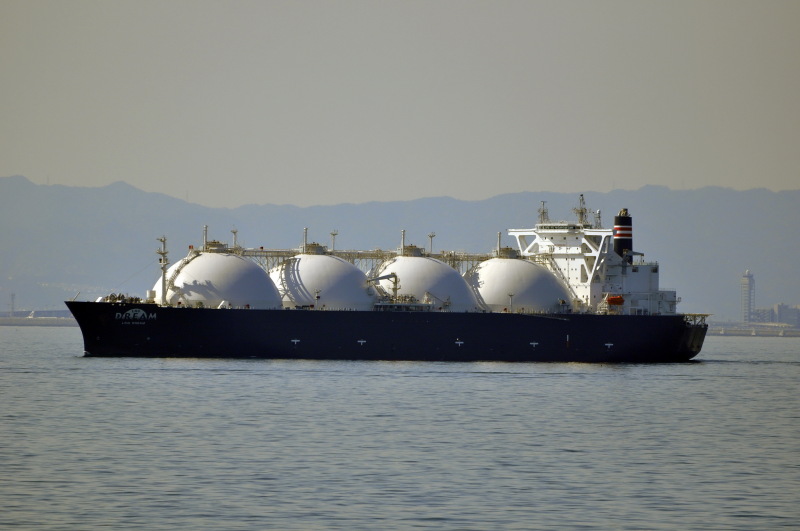Japan’s shipping giant NYK is working with Namura Shipbuilding and Sasebo Heavy Industries to replace the main propulsion on steam turbine–driven Moss-type LNG carriers with a dual-fuel diesel engine.
In October, NYK has received an approval in principle from the Japanese classification society Class NK to convert the steam turbine of an LNG carrier to a dual-fuel diesel engine.
According to a statement by NYK, this is the first AiP granted by Class NK for main engine conversion on LNG carriers.
“The three companies will proceed with a detailed design of steam turbine conversion, aiming to improve environmental performance, make efficient use of existing vessels, and contribute to stable LNG transportation,” NYK said.
X-DF engines
The shipping firm said LNG is “promising as an essential transition energy for realizing a decarbonized society”, while LNG transportation demand is expected to “grow steadily.”
On the other hand, the shortage of LNG carriers is a concern due to the limited number of new LNG carriers that can be ordered and the retirement of steam turbine–driven LNG carriers due to their inferior fuel economic performance compared to diesel engine LNG carriers, it said.
To solve this problem, the three companies will replace the main propulsion of steam turbine–driven LNG carriers with dual-fuel, low-speed diesel engines, called X-DF engines, according to NYK.
NYK said the Moss-type LNG tanks installed on steam turbine–driven LNG carriers are “durable and can withstand long-term use.”
Therefore, in addition to improving fuel economic performance, the engine replacement contributes to an efficient use of the ship’s resources, NYK said.
115 LNG carriers
NYK’s president and CEO, Takaya Soga, recently said that NYK is working to further expand its giant fleet of LNG carriers and LNG-powered vessels.
According to NYK’s second-quarter FY 2023 earnings presentation, NYK had 115 LNG carriers in its fleet as of September 30, including pre-delivery vessels with long-term charters.
Moreover, out of these, 86 LNG carriers are in operation.
The presentation does not show how many of these vessels are steam turbine–driven Moss-type LNG carriers.

